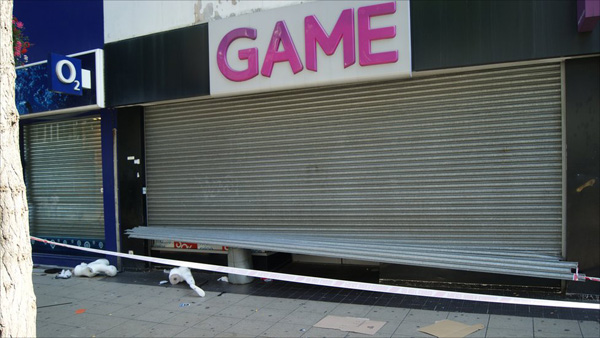
For as long as I can remember, GAME has been a feature of UK and high streets and shopping centres selling gamers the latest title for their platform of choice – whether that was the SNES or the PlayStation 3. Like the gaming industry, its clientèle was first skewed towards male teenagers, but that has changed over the years with more titles appealing to an increasingly broad crowd – but with the company entering administration today, it looks to be disappearing from our streets sooner rather than later. Much is being made of a loss of another high street store in the press, but the real question is – will it be missed?
For me, high street chains were always simply a necessary evil – they stocked the music, movies, and games you wanted at reasonable prices at a location that was nearish you, but just like HMV or Virgin Megastores – entering them was never a pleasant experience. They sold what I coveted, but that was the extent of the relationship. And with the rapid pace at which these chains are closing down, it appears I am not the only one that had that view. Now that Amazon, Play.com, and other sell those products for a similar or lower price and will have them delivered to my door the next day is an improvement. Progress.
We have long been taught that sales means pushing as many products at customers as possible – for the last few decades these high street chains have emerged that undercut their independent cousins on price and pushed them out of the high street – replacing a customer relationship, a service with just a lower price. That they are now being forced out of business by other, more dynamic, companies for the same reason is expected. The internet is the end point for the drive to lower cost, higher volume sales – as there is no relationship at all for the vast majority of transactions. Yes Amazon’s and Play’s customer support is excellent when required, which helps, but most people never use it. Taking out the costs of frontline staff and high street real-estate means that these centralised internet behemoths can undercut almost all bricks and mortar stores with ease. If your success was built on selling cheaper, not selling better – then when someone else sells cheaper than you and more conveniently (ie. online), then your time is up – and that is a good thing.
Another cause of contention in the press with the constant closure of these high street chains is the flood of empty shops with boarded up windows that currently blight many towns and cities in the UK. But again – this is a good thing. The owners of these retail spaces inflated their prices as these chains emerged, which squeezed out independent retailers and made the high streets the boring monoculture that they became through the 1990s and 2000s. With these chains collapsing they will just have to lower their prices until they make it competitive for independent new businesses to move in. That is how the market works – and if the owners believe that prices are not currently in free-fall then they are going to have quite the surprise.
Various vacant buildings across the UK’s cities have been turned into pop-up venues for music, fashion, arts, and food – where the organisers are selling exclusive experiences that only the minority will ever see or taste as they are only open for a week or month – and people will pay for that. People will also pay for good service and knowledgeable, friendly staff – as you can see from the continued success of record stores such as Rough Trade. They have built a brand around being the place to discover new music – and they are appreciated worldwide for that.
The internet has proved fertile ground for those selling individual one-off goods, with sites such as Etsy providing a marketplace that is basically without cost to the seller. These are the sellers that have been squeezed out of our high streets because of chain stores, and these are the people we need to tempt back. Instead of shedding a tear for a profit-focused company that stopped making a profit, let encourage co-ops of small independent designers to take over shop-fronts. There is a burgeoning independent games sector thanks in a good part to the rise of the mobile phone app stores – but why aren’t we encouraging the Apple, Google, and Microsoft’s of this world to sponsor high-street stores specifically for demonstrating the latest games and apps for their devices? It could be a coffee house – where all games and apps are free to use whilst within its walls so people could try new things. There wouldn;t even need to be any physical devices in there – just WiFi.
Britain used to be a nation of shop owners – with everyone making their own individual addition to the marketplace. In the last few decades we have turned into a nation of consumers – where we don’t make or sell anything useful, just want to take everything – something that can only be funded by debt – and that is what has caused the ongoing financial crisis. Lets embrace the opportunity that the closing of these chain stores is giving us to remould our culture where independent brilliance is heralded, and where shareholder profit and expansion to lower costs is no longer the only priority.
[Photograph via This Is Fake DIY]

